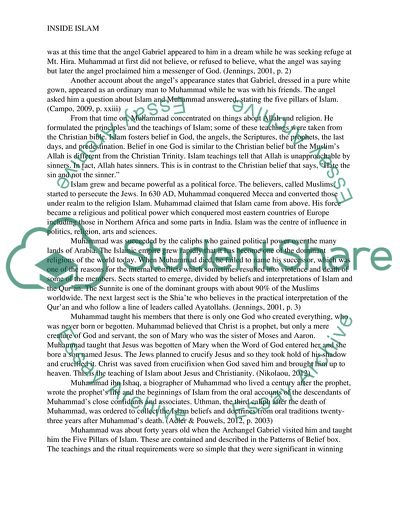Cite this document
(Inside Islam: Beliefs and Non-Beliefs Literature review Example | Topics and Well Written Essays - 2750 words, n.d.)
Inside Islam: Beliefs and Non-Beliefs Literature review Example | Topics and Well Written Essays - 2750 words. https://studentshare.org/religion-and-theology/1777457-inside-the-islam
Inside Islam: Beliefs and Non-Beliefs Literature review Example | Topics and Well Written Essays - 2750 words. https://studentshare.org/religion-and-theology/1777457-inside-the-islam
(Inside Islam: Beliefs and Non-Beliefs Literature Review Example | Topics and Well Written Essays - 2750 Words)
Inside Islam: Beliefs and Non-Beliefs Literature Review Example | Topics and Well Written Essays - 2750 Words. https://studentshare.org/religion-and-theology/1777457-inside-the-islam.
Inside Islam: Beliefs and Non-Beliefs Literature Review Example | Topics and Well Written Essays - 2750 Words. https://studentshare.org/religion-and-theology/1777457-inside-the-islam.
“Inside Islam: Beliefs and Non-Beliefs Literature Review Example | Topics and Well Written Essays - 2750 Words”. https://studentshare.org/religion-and-theology/1777457-inside-the-islam.


